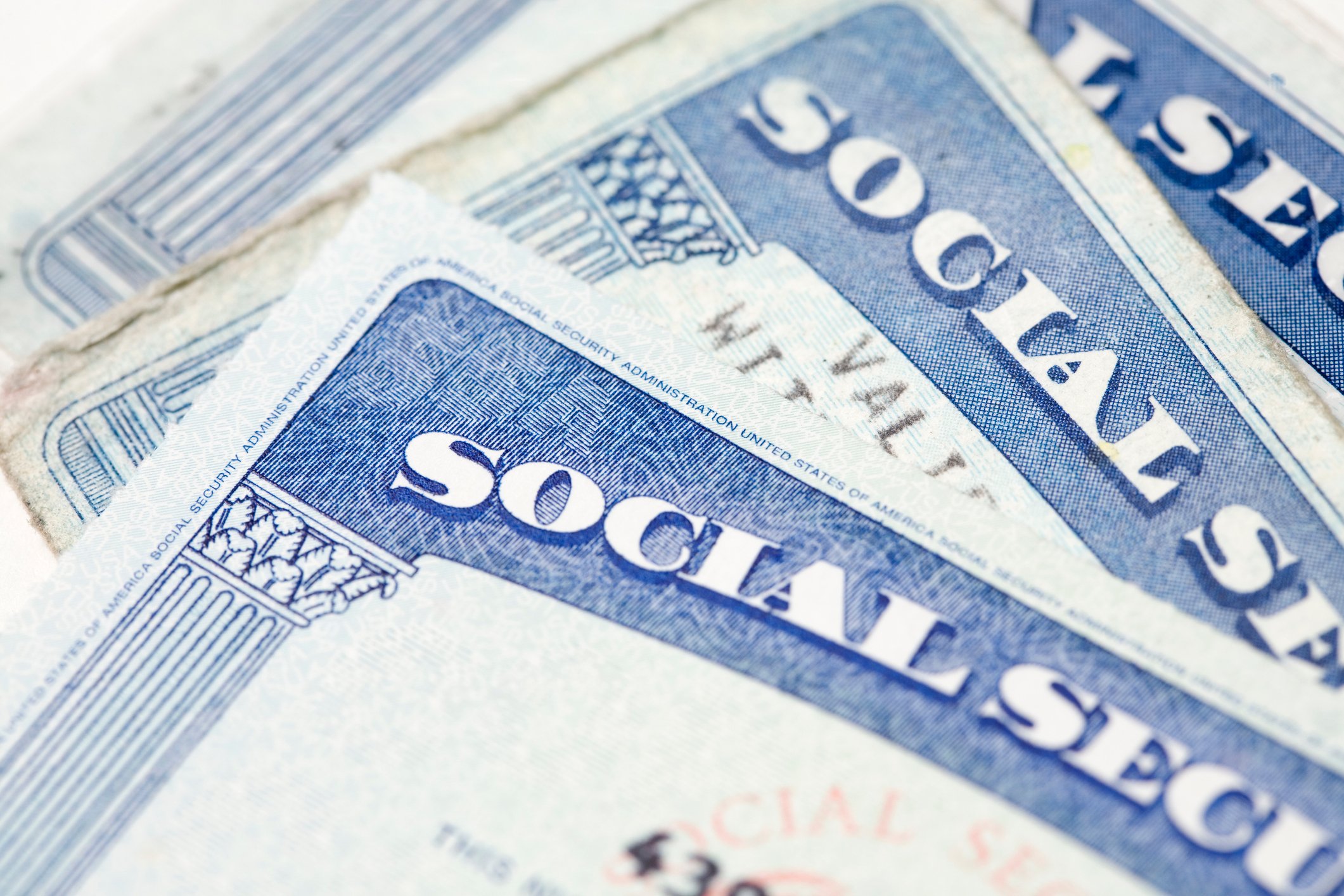The statistics don't lie: Seniors very much lean on Social Security to make ends meet during retirement.
According to data from the Social Security Administration, just over 60% of current retirees rely on their guaranteed monthly payout to provide at least half of their income. Furthermore, 34% get virtually all of their income (90% or more) from Social Security.
Meanwhile, a survey conducted by Gallup in April 2018 found that just 10% of retirees don't count on their Social Security income to play a role each month. Conversely, it means that nine out of 10 retirees do need the income provided by this critical program to keep their heads above water.
There's absolutely no disputing the importance of Social Security income, which is what makes its well-publicized problems that much scarier.

Image source: Getty Images.
Big changes are on the way for Social Security
According to the newest report from the Social Security Board of Trustees, the program has hit an inflection point. Beginning in 2018, and continuing with each passing year, more will be paid out in benefits than is collected in revenue. Though this net cash outflow will begin small, with a projected $1.7 billion deficit in 2018 followed by $0.2 billion in 2019, it's expected to accelerate rapidly by 2020 and with each subsequent year.
There are multiple reasons for this cash inflow to outflow reversal. This includes:
- The ongoing retirement of baby boomers weighing on the worker-to-beneficiary ratio.
- Increased longevity allowing beneficiaries to draw a payout for a longer period of time.
- Growing income inequality that's allowed the rich to live notably longer than the poor, and thereby draw a larger benefit check for an extended period of time.
- An extended period of low interest rates from the Federal Reserve, which sapped the interest income-earning power of the program's asset reserves.
- Inaction from Congress, which has allowed these issues to perpetuate and come to fruition.
As you may have guessed, this cash outflow is going to create problems for America's most important social program. The Trustees have forecast the complete exhaustion of Social Security's $2.9 trillion in asset reserves by 2034. That's just 16 years from now.

Image source: Getty Images.
Quite a few millennials and Gen Xers are in for a pleasant surprise
With this fact front and center on the minds of the American public, PGIM Investments, the global investment subsidiary of Prudential Financial, published the results of its newest study, the "2018 Retirement Preparedness Study: A Generational Challenge," on July 10.
This encompassing study aimed to get a feel for how different generations have prepared for retirement, as well as what factors should be adjusted for future generations to ensure a comfortable retirement. Key takeaways included that most actions taken by pre-retirees to better prepare themselves for retirement fall short of expectations, and that millennials are generally unsure of how to plan for life after work.
But what really stood out about PGIM's in-depth study were expectations surrounding Social Security for each generation. Specifically, just 70% of Gen Xers and 51% of millennials believed that they'd receive a Social Security benefit when they retire. On the flip side, it means that 30% of Gen Xers and 49% of millennials don't expect to receive a cent from Social Security in the future.
Now, here's the surprise: Social Security will be there for you, in some capacity, when you retire. Whether you're a few years from hanging your work gloves up for good, or you're just now entering the workforce, Social Security is designed to never go bankrupt.
Should the program's asset reserves be completely exhausted, which would eliminate any chance for interest income, it would still continue to generate revenue from its 12.4% payroll tax on earned income, as well as from the taxation of Social Security benefits. Put another way, as long as the American public continues to work, revenue will be collected by the program that can be disbursed to eligible beneficiaries. Unless Congress were to change how the program is funded, Social Security is in absolutely no danger of going bankrupt.
That's the good news.

Image source: Getty Images.
But temper those expectations
Now for the not-so-great news.
Even though Social Security will have no trouble motoring on for as far as the eye can see, thanks for its payroll tax and the taxation of benefits, the depletion of its excess cash is a clear sign that its current payout schedule isn't sustainable. In fact, the current payout schedule produces an estimated $13.2 trillion cash shortfall between 2034 and 2092, per the Trustees report.
Should lawmakers on Capitol Hill do nothing, benefits may need to be slashed by up to 21% in 2034 to sustain payouts through 2092, without any additional cuts. Again, Social Security will continue to provide a benefit to all eligible workers who've earned the prerequisite 40 lifetime work credits required to receive a retirement benefit. But that future payout may not be as robust as what their parents or grandparents received.
There are, of course, ways to avoid reducing benefits significantly. Democrats have proposed raising revenue by increasing or eliminating the earnings cap associated with the payroll tax. Right now, all wage income in excess of $128,400 is exempt from the payroll tax. Raising or eliminating this cap would require the well-to-do to pay more into the program.
Likewise, Republicans have offered up a plan to gradually increase the full retirement age to account for longer life expectancies. Lifting the full retirement age -- the point at which you become eligible for 100% of your retirement benefit, as determined by your birth year -- would ultimately reduce the lifetime benefits received by future generations of retirees, saving Social Security money over the long run.
At the moment, neither party is anywhere near passing a resolution to fix Social Security, so temper those expectations.





